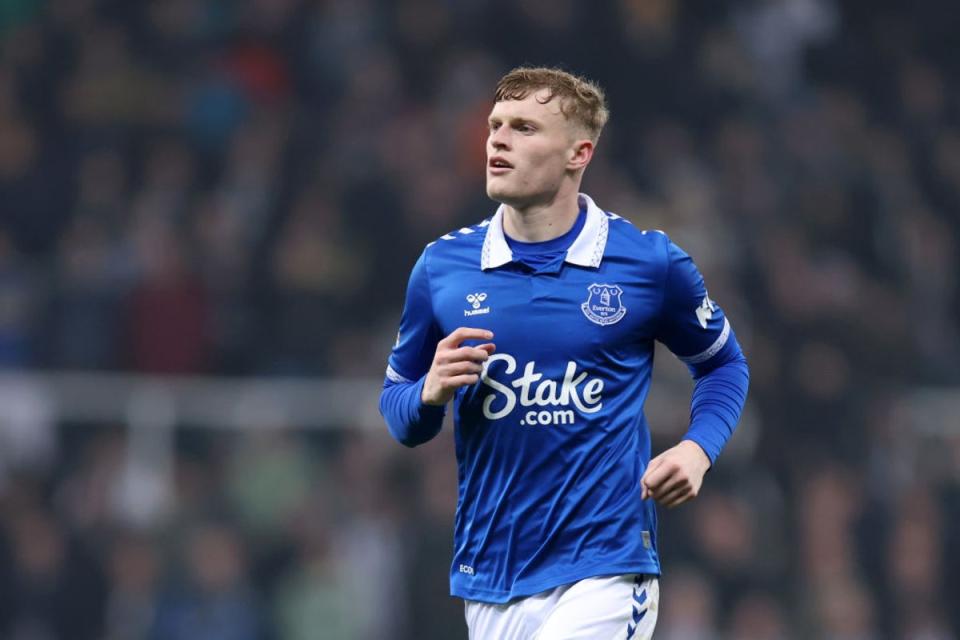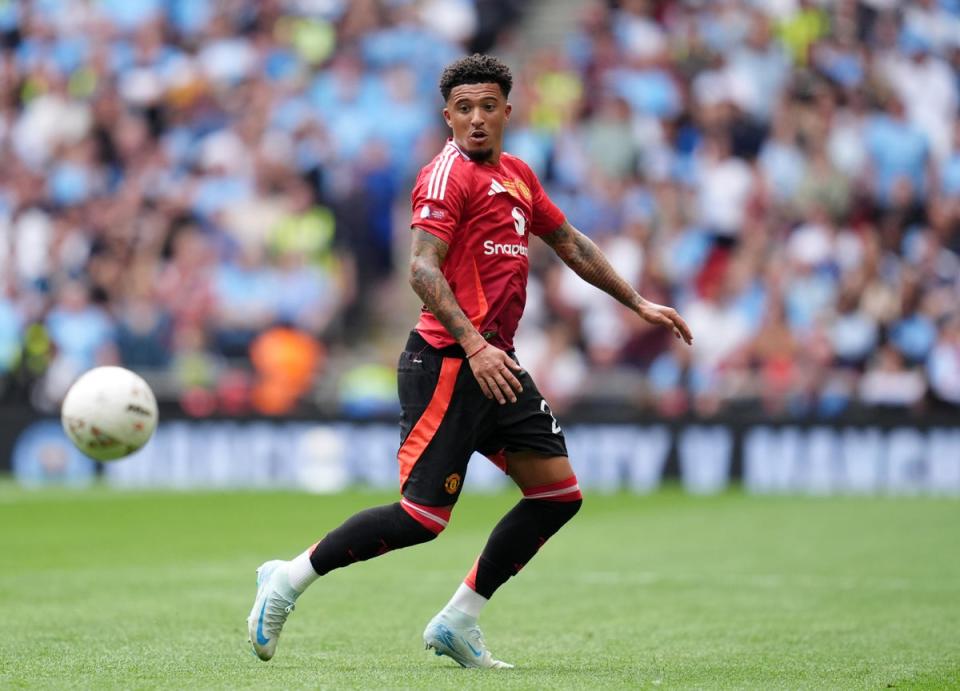Manchester United have wasted billions, but ‘those days are over’

It was a statement of intent, by stepping back. When Manchester United were quoted £75m plus add-ons by Everton for Jarrad Branthwaite, the pursuit pretty much ended there and then. Some at the Goodison Park hierarchy were taken aback by the abruptness. They were convinced they would get that kind of price.
Dan Ashworth, United’s new sporting director, was adamant they would not. It was a point of principle. “Those days are over,” he was heard to say. Another line uttered at the top of Old Trafford was “the gold at the end of the United rainbow is no more” for other clubs.
It’s why their negotiations for Paris Saint-Germain’s Manuel Ugarte have been so protracted.
FOLLOW LIVE: Brighton vs Manchester United team news and latest build-up to early Premier League kick-off
Many in football would know this obstinacy from dealing with Ashworth, albeit from the other side, from when he’s discussed the sale of Brighton players in his time there up to 2022.
It makes this Saturday’s fixture at the Amex Stadium all the more timely, especially as it is the last in the Premier League before the summer transfer window closes. This is a game between the club who have got their transfer business absolutely right, to one who are now just starting to try. United are also yet another club who almost want to be an elite Brighton.
That dynamic is all the more pronounced given how Brighton’s supreme efficiency has ensured they have repeatedly subjected United to humiliations that were almost moral lessons. It has often been at moments when the Manchester club were convincing themselves that an ailing approach could still work that Brighton disabused them of such notions. And, usually, quite emphatically.

Jose Mourinho’s team were beaten 3-2 at the start of a season where he was sacked. Ralph Rangnick’s team were eviscerated 4-0 when he was warning United about what next. Erik ten Hag’s side were beaten 2-1 at the start of the next season, eventually influencing his change in tactics, before suffering two more defeats to Brighton.
While many would gesture to United beating Brighton in an FA Cup semi-final or Ole Gunnar Solskjaer’s unbeaten run, the reason the record remains so impressive is the immense difference in resources.
Such results came from the clash between a club that has wasted billions to one that maximises everything it has. While the story of how Brighton managed the latter is now well told, the point is how in control they were of every decision. This is why Ashworth’s stance on Branthwaite is so indicative now.
Brighton have of course been regularly forced into sales, but then their entire approach has been based on a proactive attitude to where they are in football’s food chain. They know they have to sell. There are bigger, wealthier clubs. While other hierarchies would have been criticised for a “lack of ambition” in not seeking to keep players, Brighton’s realism has been central to the club performing beyond supporters’ greatest dreams.

It also means that, when they inevitably sell, it’s on their terms. Hence a series of huge prices, for players that often haven’t lived up to those valuations elsewhere. Just as relevantly, their successors have continued Brighton’s improvement.
This is the level United want to get to, if on their own grander scale. An obvious contrast to Brighton dictating sales prices is United overpaying for so many players, from Antony to Rasmus Hojlund. These deals have all been brought up by the new hierarchy as regards what not to do in future but even more pointed has been the comparative struggle to sell players.
A deal for Ugarte is partly being held up because they haven’t yet sold either Jadon Sancho or Scott McTominay. In a familiar complaint, interested clubs have found the wages are too high.
This is almost the biggest challenge the new hierarchy face: actually overhauling the squad. The main obstacles are the contracts and decisions agreed upon by the previous football structures.
Despite that, there is a confidence that United’s summer has already gone in the right direction.
They have essentially secured three quarters of a defence - Lenny Yoro, Matthijs de Ligt and Noussair Mazraoui - for around the same price they might have previously paid for Branthwaite.

New chief executive Omar Berrada is said to have been especially intent on signing Yoro as a different type of statement, to signal the deals United can now do. It was viewed as impressive that they got the highly-promising defender ahead of both Real Madrid and Liverpool. The £50m-plus valuation, while criticised, is in-keeping with a wider market shift towards youth and higher prices but lower wages.
Along the same lines, players on huge salaries - Raphael Varane, Anthony Martial - have already been removed from the wage bill. There is general satisfaction at how the numbers are trending.
The medium-term aim is to make everything leaner, so the club can be more agile, and act decisively. It sounds familiar. This is of course only what the highest-performing clubs have done for so long, from Brighton to Borussia Dortmund, Liverpool and Manchester City. Any signing fit into a specific central ideology, and they all consequently had a multiplying effect. United used to actively resist this, wanting broader parameters to not limit themselves.
It baffled other clubs, even as they delightedly signed the contracts. No more. Even PSG have noticed the change, as United certainly aren’t panicking over Ugarte.
As regards what it means for Saturday on the pitch, it comes back to that idea of control. Control in the market gradually conditions command on the pitch, and amplifies these unifying ideas. There are fewer and fewer gaps in a team. A side gets to a point where there are obvious signings that can be made, like Virgil van Dijk at Liverpool or Declan Rice at Arsenal.
United are some way off that. Brighton are at a much more advanced stage, which means the youngest-ever Premier League manager just fits. Fabian Hurzeler, however, might find there are fewer holes to exploit in a Manchester United team than his predecessors did.

